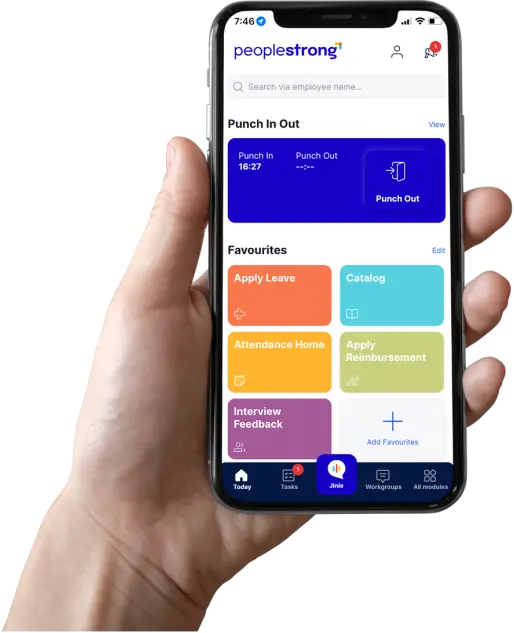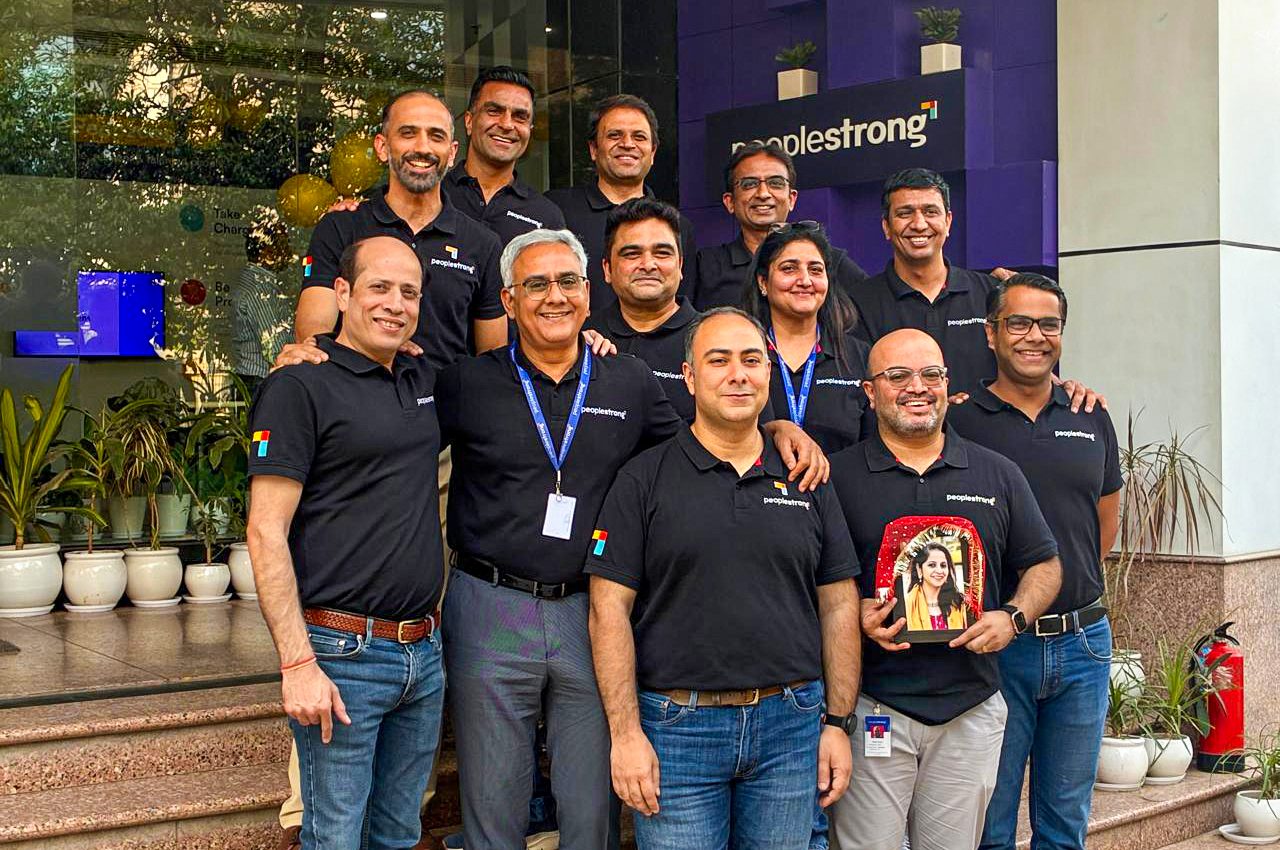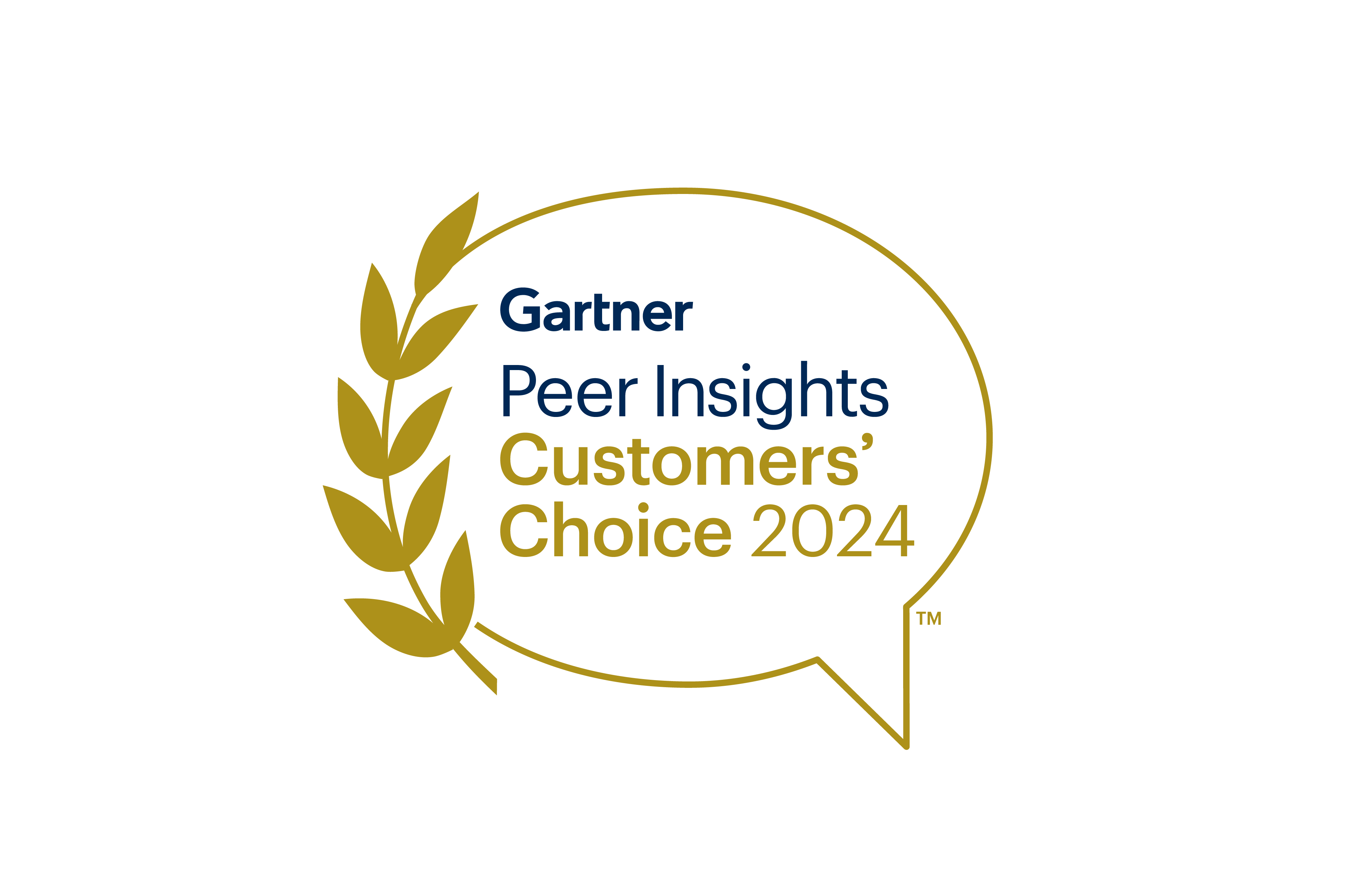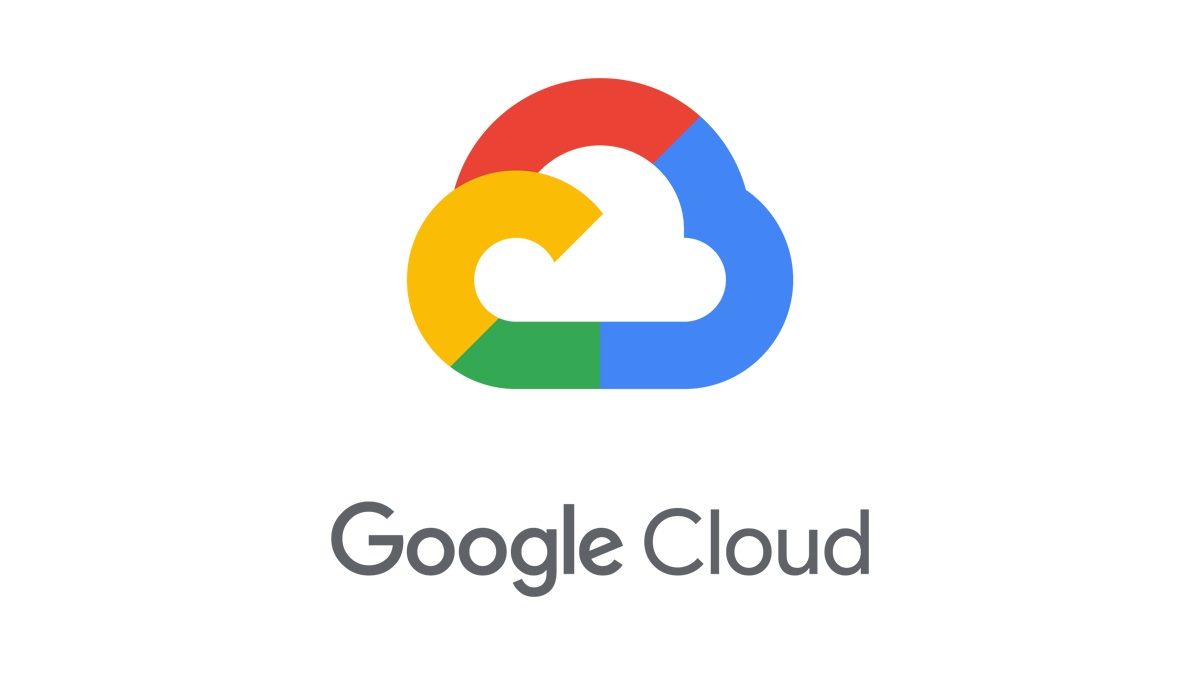In today’s landscape, HR technology drives measurable business value for 46% of organizations. While HR departments have historically been vital to company success, they’ve evolved beyond traditional recruitment and compliance roles into strategic drivers of growth and innovation.
By 2025, HR initiatives will orchestrate entire organizational ecosystems. Leading HR departments will leverage technology and data analytics to generate actionable insights and deliver tangible value.
Modern HR leaders must cultivate continuous learning environments while driving transformation in diverse workplaces. Success in 2025 and beyond demands innovative strategies that balance organizational growth with employee satisfaction and well-being.
Characteristics of a Forward-Looking HR Department
Better the proactiveness and inclination to be data-driven, higher are the chances to implement innovative HR initiatives. It also massively helps in assessing the out-dated ways of recruiting and development to determine whether they are still useful.
Here are some characteristics that define progressive HR departments.
1. Alignment with Overall Goals
An innovative HR department must work closely with the company’s leaders to ensure that their strategies are in sync with the company’s business objectives. Further, they must also align with the company’s overall vision for best results.
For example, if a company is focused on international growth, HR must find ways to recruit and retain talent in global markets. It must also develop collaborative and unified onboarding and training programs.
HR leaders must often collaborate with other department heads to ensure that talent management and training objectives are in alignment with their goals. Business performance metrics can be incorporated into HR dashboards for better decisions.
2. Proper Use of Data
Data-driven HR initiatives for employees are about a lot more than tracking metrics of retention and performance. In 2025, HR departments need to use advanced analytics that will provide insights into many more aspects.
Two examples are identifying skill gaps and analyzing how improving corporate culture will impact productivity. Such analytics tools will also let HR forecast talent needs based on changing conditions or goals.
With the right HR initiatives, organizations can track, capture, and assess employee data, from performance to sentiment. Workforce planning platforms and AI-driven decision-making systems will help HR be more proactive. Additionally, HR departments can use The QR Code Generator to provide employees with instant access to surveys, feedback forms, or wellness program details, improving real-time engagement.
3. Integrating Disintegrated HR Tech Stack
Like many company departments, HR uses different tech platforms for its operations. Among them are platforms for recruitment, learning, payroll, and performance management.
The problem is that, over time, this leads to duplication, inefficiency, and complications. Cross-platform data integration becomes a headache and consumes valuable time and resources.
To overcome this issue, HR initiatives for employees must look at integrated platforms that can connect separate tools seamlessly. The system should create a single data flow across functions, enabling HR to make data-driven decisions without unnecessary fuss or complications.
4. Promoting Diversity
Proper diversity and inclusion policies can help organizations outperform others by almost 70%. In 2025, HR initiatives need to take better charge of increasing diversity in the workplace before it’s too late.
Creating an inclusive culture requires HR departments to address critical challenges: unconscious recruitment bias, targeted development for underrepresented groups, and inclusive leadership programs.
Innovative strategies include implementing blind recruitment software and AI-powered resume screening to reduce bias. Comprehensive diversity training enables ongoing progress tracking, ensuring equal opportunities for all employees.
5. A Focus on Enhancing Business Performance and Productivity
Top HR departments elevate people management by driving business performance. They boost productivity through strategic interventions: employee engagement, optimized organizational structures, targeted learning and development, and continuous performance reviews.
By collaborating with business units, HR can address performance bottlenecks, enhance skills, and implement feedback systems that drive constant progress.
6. Emphasizing Employee Experience, Career Growth, and Well-being
Recognizing talent as a company’s most valuable asset, HR now focuses on holistic employee experiences. Beyond traditional perks, this means personalized learning paths, hybrid work options, continuous skill development, and comprehensive well-being strategies.
The goal: Create an environment that nurtures growth, balances work-life dynamics, and empowers employees to thrive.
Strategic HR initiatives for well-being can consider physical health, mental health, and emotional strength. They should also incorporate performance reviews for the modern age.
8 Innovative HR Initiatives for the Year
Now that we have provided a general outline of the characteristics of a progressive HR department, let’s discuss some specific HR initiatives for 2025.
1. AI-Driven Employee Development Plans
AI and machine learning are radically changing the way companies work. For HR, one specific area where this can be applied is employee development plans.
HR departments can develop individual employee development journeys by collecting data about all aspects of employee performance, learning, and aspirations. Such plans ensure that training is relevant and impactful.
AI systems enable course reccomendations or certifications based on an employee’s role and future career plans. It can incorporate emerging industry trends into learning. AI-powered tools can map employee strengths, preferences, and career paths. They can also potentially predict potential future leaders and aid succession planning.
2. Employee Experience Platforms
Employee experience platforms are growing into integrated solutions that embrace feedback, engagement, development, and performance management.
These platforms use real-time data to provide insights into employee responses regarding jobs, managers, and culture. They allow HR teams to analyze feedback across the employee lifecycle.
Thus, HR initiatives for employees can provide insights into retention, productivity, and job satisfaction. Programs can be developed to address emerging issues that can be addressed before they cause misalignment.
3. Tracking and Promoting Employee Well-being
Today, the HR department’s role in employee well-being can go beyond the basic steps of gym memberships and other wellness programs. One method is to provide employees with wearable technology and mental health apps that provide analytics to check their well-being continuously.
More specifically, devices such as smartwatches and other types of fitness trackers can collect health metrics such as sleep patterns or heart rate. Checking such data helps HR address issues such as burnout or stress before they escalate.
4. Promoting Innovation
Innovation, undoubtedly is a winning factor in company growth. Unique HR initiatives must help create an environment where employees are encouraged to experiment and share new ideas.
Cross-departmental collaboration can be promoted by internal innovation challenges or by combining employees from different areas for specific projects. This is essential as 73% of companies who use cross-departmental collaboration experience improved performance. In this context, it is important to keep in mind that silos should not become a problem in knowledge-sharing.
In more forward-thinking companies, employees can even be encouraged to work on personal projects related to company goals. Idea-sharing platforms can also allow employees to pitch proposals and collaborate on new initiatives.
5. Diversity & Inclusion Tools
We have already discussed the importance of diversity and inclusion. The tools for promoting these are becoming more advanced, providing data to identify gaps and drive meaningful change.
These tools can offer real-time insights into where biases exist in the hiring process and show how underrepresented groups might be overlooked for promotions.
When it comes to recruitment, HR departments can look at how to come up with bias-free job descriptions and incorporate inclusive hiring practices. Strategic HR initiatives could include workshops on spotting and overcoming unconscious bias.
6. Creating Personalized Career Pathways and Job Rotation
Personalized career pathways help HR departments attract and retain the best talent. By using employee data linked to skills, experiences, and goals, HR initiatives can design career paths with opportunities for growth within the company, boosting retention rates.
Personalized learning and career development programs will also allow employees to take advantage of opportunities to explore different career paths within the organization.
Such job rotation can lead to employees finding the best ways to contribute to organizational success. The best performance management software can go a long way to enable this.
7. Digital Mentorship and Peer Coaching
New methods of mentorship can be impactful ways to build employee engagement. At a time when office environments are digitally based, employees can be guided and coached not just by their immediate superiors but by peers, managers, and even external experts.
Digital mentorship platforms enable remote and cross-departmental mentorship, improving accessibility and encouraging knowledge-sharing across the organisation as a whole.
Unique HR initiatives should explore setting up formal and informal digital mentorship programs that allow employees to connect with mentors at any level. This will open up learning and development opportunities beyond location or seniority.
8. Predictive Analytics for Workforce Planning
Using predictive analytics, HR departments can analyze patterns in turnover, performance, and employment trends to identify talent gaps. Algorithms can also be crafted to use historical data to forecast future workforce needs.
These predictive tools can help HR modify recruitment and development strategies to take advantage of new opportunities. Potential issues can be addressed even before they arise and affect operations.
How an HR Department Can Be Ready for Tomorrow
HR initiatives need to be flexible and forward-looking to help their enterprises thrive in 2025 and beyond. Here are some steps that HR should consider.
- Strategic Mindset: Talent management should be seen as a key driver of business success. A full-fledged talent strategy needs to incorporate leadership development, succession planning, and long-term workforce planning for future success.
- Invest in Employee Development: Continuous learning is vital for progress. HR should implement programs that offer employees a range of learning opportunities across disciplines. These opportunities can be chosen based on individual employee interests, motivations, and company objectives.
- Create a Culture of Innovation: Innovation takes root in an environment in which employees are encouraged to experiment and collaborate. They can take calculated risks, share ideas freely, and climb over departmental silos. These activities can be promoted through the use of digital platforms.
- Promote Hybrid Working Models: The post-pandemic years have been noted for varied working models. HR can invest in remote work technologies such as collaborative tools, onboarding platforms, and methods of managerial feedback. These can be used to make remote and hybrid teams more engaged and productive.
- Innovative Retention Strategies: HR can boost employee retention in several innovative ways. Individual development strategies, flexible work plans, and feedback loops can be integrated to keep top performers motivated and engaged.
2025 HR Initiatives, Summed Up
HR departments are rapidly evolving. They are now strategic partners in promoting a company’s long-term growth and innovation.
They will be looking at integrating tech stacks, AI-driven development plans, and employee experience platforms. Other initiatives include greater stress on innovation and personalized, data-driven career paths.
Unique HR initiatives should adopt a strategic mindset regarding employee development, playing a key role in achieving business goals and creating a motivated, productive workforce.
At PeopleStrong, we offer forward-looking companies a suite of tools to help HR teams manage everything from recruitment and performance management to employee well-being and skill development.
Get in touch today to build an agile, engaged workforce ready to meet tomorrow’s challenges!
FAQs
What are some key HR trends for 2025?
Some key trends and initiatives for HR departments this year are:
- Holistic steps for overall employee well-being.
- Workplaces should be made diverse and inclusive by providing opportunities for all employees without bias.
- AI and machine learning for efficient recruitment and performance management.
- An emphasis on satisfying employee experiences
- Developing a strong company culture and improving employee satisfaction.
How can HR departments effectively implement innovative initiatives?
HR departments can regularly get employee feedback. New HR initiatives could be tested selectively before being rolled out organization-wide. The effectiveness of HR initiatives can be tracked regularly, and they can be tweaked and adjusted.
Training should be provided if necessary to implement initiatives successfully. The advantages and benefits of unique HR initiatives should be clearly communicated to all employees.
What are the potential challenges of implementing these HR initiatives?
Employees and department heads could resist HR initiatives because they are concerned about productivity or workload. Management may need to be convinced to approve extra budgets for technology and training. Finally, measuring the ROI of unique HR initiatives may be challenging.
How can HR departments stay ahead of the curve in 2025?
Here are some proactive steps that HR departments can take:
- HR professionals must take steps to learn about upcoming trends and technology.
- Data should be mined for better decisions about performance and expectations.
- There should be open communication to build trust.
- HR technology tools should be used to streamline processes and improve efficiency.
- There should be constant opportunities for learning and career advancement.













